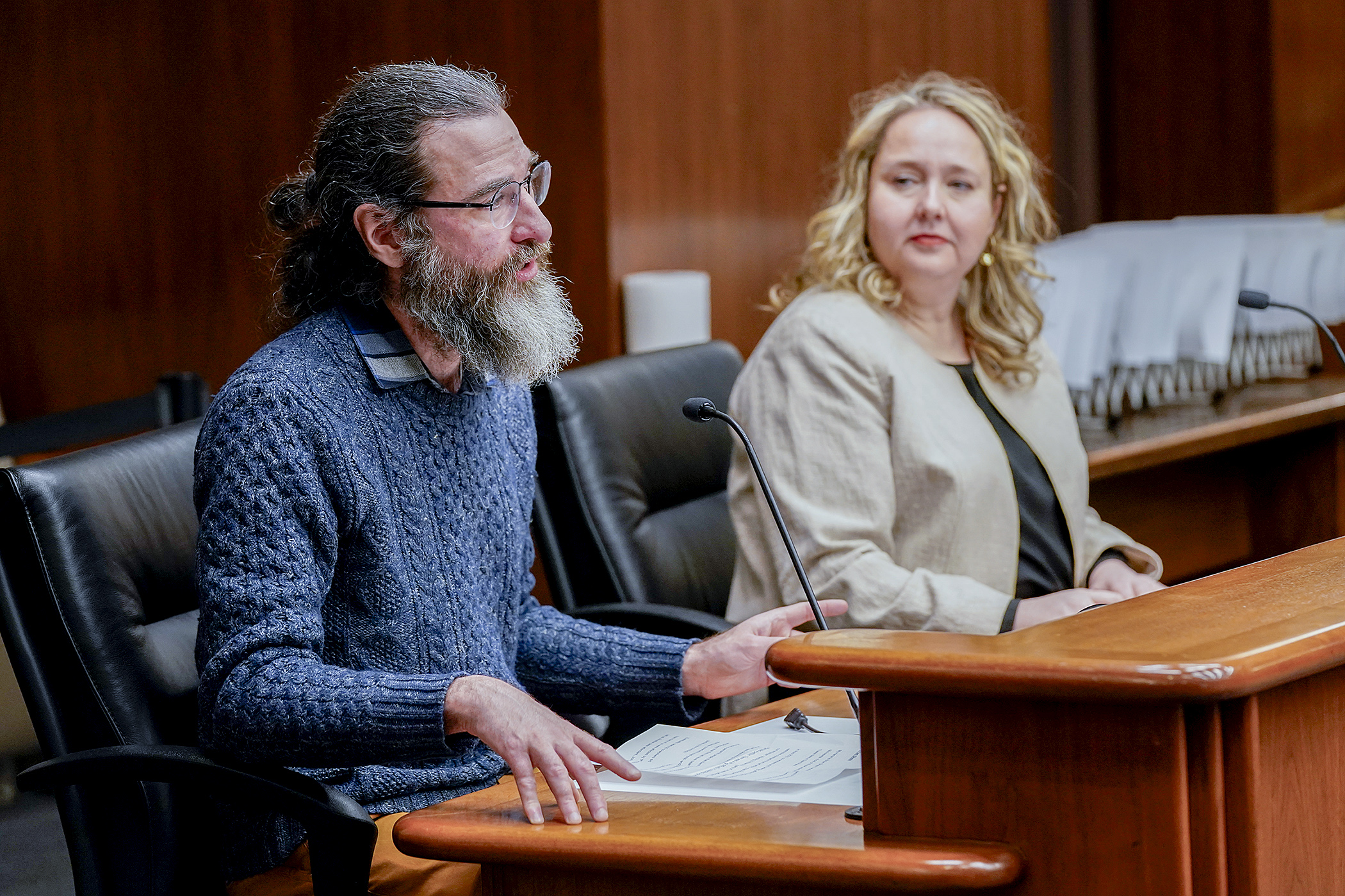Judiciary panel spotlights ‘shadow’ non-compete clauses, approves bill to close loophole

A 2023 state law prohibits noncompete clauses in most employment contracts.
It is aimed at stopping, for example, one restaurant from preventing a competing restaurant from hiring a former worker from the first restaurant. Such contracts, when they were legal, often restricted re-employment for a specified amount of time, such as one year.
Rep. Emma Greenman (DFL-Mpls) sponsored that law, telling the House Judiciary Finance and Civil Law Committee Tuesday that it was “a big step forward in protecting workers.”
However, in the interim she learned about a loophole that permits what she calls “shadow” non-compete contracts or covenants to remain legal, thereby creating “barriers to the freedom to work and fair competition.”
Now she sponsors HF3456, which would prevent a company or partnership that provides services to a customer from restricting the customer from directly or indirectly soliciting or hiring one of its employees.
“It closes a loophole to ensure that Minnesota’s prohibition on non-competes and no-poach agreements is not evaded in service contracts that are signed above the heads and often without the knowledge or consent of the workers being impacted,” Greenman said. “They restrict workers from being able to seek better wages and working conditions, and they limit workers’ career growth within an industry.”
The judiciary committee approved the bill, as amended, on a split-voice vote Tuesday and sent it to the House Floor.
An example of a shadow noncompete contract that is hidden from an employee was provided in written testimony by SEIU Local 26.
When a homeowner’s association under one of these contracts switches to a different property management company, these contracts prevent that association from retaining their experienced staff without the risk of litigation for continuing to employ that staff directly, or indirectly through a different property manager for a specified period of time.
Shadow noncompete contracts or covenants are especially insidious, said Brian Shea, because employees don’t even know if they are subject to them.
That’s the situation Shea found himself in last year when his job of six years working the overnight desk at a building in downtown St. Paul was eliminated.
He previously learned through media reports of a noncompete clause in the contract between the building’s management company and the company it contracted with, FirstService Residential of Minnesota, which employed Shea.
Repeated inquiries to both corporations were denied, and Shea still doesn’t know whether the contract between those two corporations will restrict his future job opportunities.
“Looking for work, I have no way of knowing whether or where these covenants restrict my employment,” he said. “And even if I did know, the existence of the covenants still limits employment opportunities, and it distorts the labor market.”
Jeff Tollefson, president and CEO of the Minnesota Technology Association, said the bill would have a chilling effect on consulting companies, especially those in the technology sector.
“Technology consulting firms invest a lot of time and resources recruiting skilled talent and providing specialized training,” he said. “If client companies where those contracted employees are deployed have an unfettered ability to directly hire those individuals at any time, many of these consulting firms would choose not to operate in our state.”
Rep. Harry Niska (R-Ramsey) said he could support the proposal only if it were narrowed to prevent the kind of situations Tollefson raised.
As it stands, he said, the bill is overly broad, too restrictive, and would remove the economic incentive that consulting firms need to have in place to successfully do business.
Related Articles
Search Session Daily
Advanced Search OptionsPriority Dailies
Speaker Emerita Melissa Hortman, husband killed in attack
By HPIS Staff House Speaker Emerita Melissa Hortman (DFL-Brooklyn Park) and her husband, Mark, were fatally shot in their home early Saturday morning.
Gov. Tim Walz announced the news dur...
House Speaker Emerita Melissa Hortman (DFL-Brooklyn Park) and her husband, Mark, were fatally shot in their home early Saturday morning.
Gov. Tim Walz announced the news dur...
Lawmakers deliver budget bills to governor's desk in one-day special session
By Mike Cook About that talk of needing all 21 hours left in a legislative day to complete a special session?
House members were more than up to the challenge Monday. Beginning at 10 a.m...
About that talk of needing all 21 hours left in a legislative day to complete a special session?
House members were more than up to the challenge Monday. Beginning at 10 a.m...